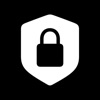Internet Security Tips Every Trader Should Know
With windows of opportunity opening up in the trading market daily, the number of people interested in this field is increasing significantly. Unfortunately, not everyone who wants to explore these opportunities has good intentions. Some scammers have found ways to exploit and defraud crypto users, making a fortune for themselves, which no trader wants to experience. The following guide provides essential internet security tips that traders should know to protect their investments and personal information.
Essential Internet Security Tips for Crypto Traders
The convenience of trading cryptocurrency and the potential for significant financial gains are unparalleled. However, with these benefits come constant internet security risks that threaten investments and personal information. Protecting your digital assets requires staying ahead with the most up-to-date security practices. Below are key tips every trader should follow.
1. Create Strong, Unique Passwords
A simple yet highly effective way to protect your trading accounts is by using strong, unique passwords. These passwords should be uppercase, lowercase letters, and numbers. Furthermore, avoid using prominent information about you, such as your name, birth date, or common terms related to you or your family.
It is crucial to use different passwords for each account. If one account is compromised, reusing the same password across multiple platforms could give hackers access to all of them. A reliable password manager can help generate and store complex passwords securely.
2. Enable Two-Factor Authentication (2FA)
Two-factor authentication (2FA) adds a layer of security by requiring a second form of verification in addition to your password. This second factor might include a one-time code sent to your phone, a fingerprint, or a hardware token. Even if someone obtains your password, they still need this second factor to access your account.
3. Keep Your Software Updated
Outdated software is a common vulnerability that hackers exploit. This includes your operating system, web browser, trading applications, and plugins or extensions. Developers frequently release updates to patch security flaws, so installing these updates as soon as they become available is essential. Additionally, keep your antivirus software updated and ensure it runs regular scans.
4. Be Wary of Phishing Scams
Phishing is a tactic where cybercriminals attempt to trick you into revealing sensitive information, such as login credentials or credit card details. Phishing attempts often come through emails, texts, or phone calls from legitimate sources. Always verify the authenticity of any communication from trading platforms or financial institutions before clicking links or downloading attachments.
5. Secure Your Internet Connection
Your internet connection is the gateway to your online activities, including trading. Using an unsecured connection can allow hackers to intercept your data and monitor your transactions. To protect your connection, avoid using public Wi-Fi networks for trading or accessing sensitive information.
Public networks are often unencrypted and are prime targets for cybercriminals. For those who can not do without public Wi-Fi, using a Virtual Private Network (VPN) to secure data becomes very important. Choose a reputable VPN service that offers strong encryption and a no-logs policy.
6. Choose Secure Trading Platforms
Not all trading platforms provide the same level of security. Before selecting a platform, thoroughly research its reputation for security. Look for features like strong encryption, cold storage options for funds, and a history of transparent responses to security breaches.
Additionally, check whether the platform has undergone third-party security audits. These audits evaluate the platform’s security protocols, ensuring that your funds are managed securely. Diversifying your assets across multiple platforms can also mitigate the risk of losing everything in a security breach.
7. Stay Alert to Social Engineering Attacks
Social engineering attacks involve tricking individuals into revealing confidential information or performing actions compromising security. For example, someone pretending to be a customer service representative from your trading platform or another trader offering seemingly helpful advice could be used. If you’re unsure about a request’s legitimacy, contact the company directly using official channels.
8. Regularly Monitor Your Accounts
Keeping a close eye on your trading accounts is crucial for maintaining security. Frequent checking can quickly spot unauthorized transactions or suspicious activity. Most platforms offer alert options for any account activity, helping you respond to potential security threats in real time.
9. Continuously Educate Yourself
Cybersecurity is an ever-changing field, with new threats emerging constantly. Moreover, staying informed about the latest security threats and best practices is important. This can involve following reputable cybersecurity blogs, attending webinars, or participating in online forums dedicated to trading and security.
In addition to educating yourself, consider sharing your knowledge with others in your trading community. Promoting a culture of security awareness can help protect your assets and those of your fellow traders.
10. Utilize Cold Storage for Cryptocurrencies
Understanding the importance of cold storage is essential if you trade or hold cryptocurrencies. Cold storage significantly reduces the risk of hacking because your private keys are kept offline. Purchase hardware wallets from trustworthy sources and avoid second-hand devices, as they may have been tampered with.
11. Limit Your Online Sharing
As a trader, you might participate in online forums, social media sites like X and Facebook, or Discord trading communities. While sharing insights and networking can be valuable, it also exposes you to risks that could compromise your investments. Be cautious about sharing details of your trading strategies, account balances, or personal information that could be used in a cyberattack.
Related Apps
Latest News
- Internet Security Tips Every Trader Should Know
- Enhance Your Experience with Oracle Cloud Services with Test Automation
- Navigating the Web Safely: Essential Tips for Protecting Your Digital Life
- SaaS vs. On-Premise Solutions: Which is Better for Your Business?
- How to Use Educational Apps Safely
- How can VPN make a difference to your life





